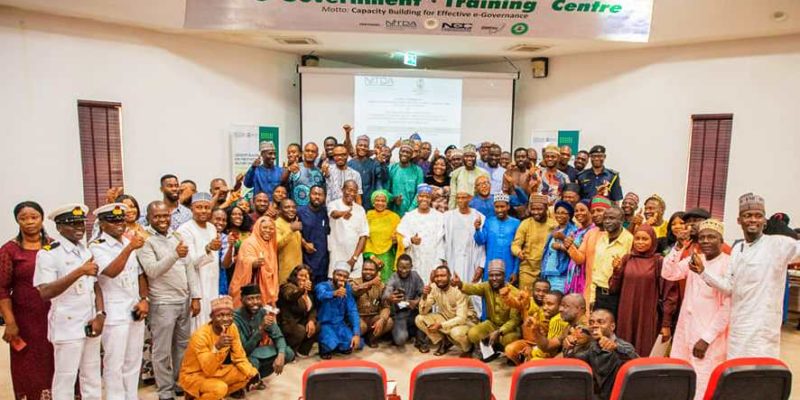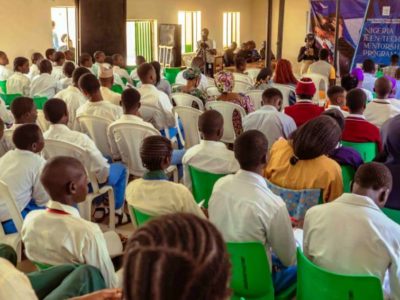The National Information Technology Development Agency (NITDA) has completed a capacity-building programme for 100 participants from ministries, departments and agencies (MDAS), military and paramilitary agencies in its commitment to build a sustainable digitally transformed Nigeria by engaging the workforce of various Federal Public Institutions (FPIs).
Personnel of the MDAs were trained on digital literacy and skills, cybersecurity essentials and cloud computing and other capacity development programmes.
RELATED: Technology will erode rather than improve democracy without government and regulations, says NITDA boss
At a recent ceremony to mark the end of the programme in Abuja, Director General of NITDA, Kashifu Inuwa Abdullahi, expressed happiness over the active contribution of the participants urging them to be good ambassadors of the knowledge gained in their various organisations.
He said the present administration of President Muhammadu Buhari through the Ministry of Communications and Digital Economy has developed initiatives to ensure that the digital transformation of the country is achieved.
Echoing the agency’s ambitious target of attaining 95% digital literacy by the 2030, the Abdullahi said that digital literacy and skill is a key pillar of the National Digital Economy Policy and Strategy (NDPES) strategic document which was launched by Mr. President in 2019.
“In order for Nigeria to attain 95% digital literacy by 2030, we need your collective effort in ensuring that the NDEPS serves as a guidance and guideline in all our processes at our various workplaces,” said Abdullahi who was represented at by the agency’s Director of Information Technology Infrastructure Solutions, Dr. Usman Abdullahi.
Speaking on the NITDA’s effort on the implementation of NDEPS, he stated that the agency developed its Strategic Roadmap and Action Plan (SRAP) 2021-2024 document in which, Digital Literacy & Skill, Cybersecurity and Emerging Technologies are part of the seven pillars which it is anchored on.
“Among the pillars are the Digital Literacy & Skill, Cybersecurity and you have been trained in Cybersecurity Essentials. Another pillar is emerging technologies and you have been trained in cloud computing. There are 7 pillars in total and each pillar is key to our journey towards the realisation of the digital economy,” Abdullahi said adding tha NITDA was focused on building the skills and capacity of people highly essential in digitally transforming the country.
According to him, NITDA has set up Digital Transformation Technical Working Groups (DTTWG) in 200 MDAs in the country with the aim of driving digital transformation agenda as well as adding value to their processes for the benefit of all Nigerians as part of complimenting the efforts of the Ministry of Communications and Digital Economy through the development of SRAP.
“The importance of this programme cannot be overemphasized and now that you have been taught, the expectation is that you go back to your various organisations and implement all you have been taught,” he said.
On her part, the Acting Director, Digital Literacy and Capacity Development department, Dr. Amina Sambo-Magaji, admonished the participants to be ambassadors of the programme by implementing all they have learnt and propagating the programme to their colleagues.






























